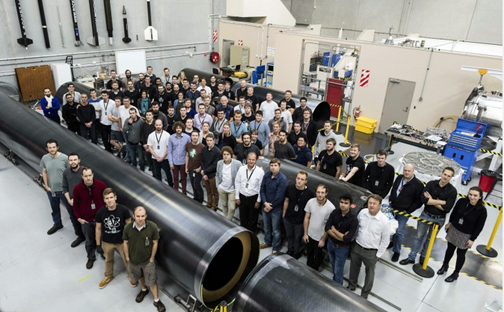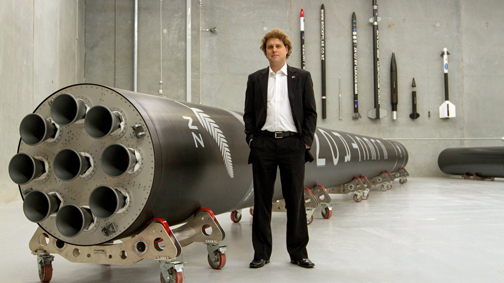
This week, Rocket Lab celebrated their ten-year anniversary.
Founded in June 2006 as a center for advanced space systems, Rocket Lab is best known for its Electron orbital launch program. The company has a rich history of developing propulsion systems and launch vehicles for a multitude of government and commercial customers and the company has successfully launched more than 80 sounding rockets and, in 2009, became the first private company to reach space from the Southern Hemisphere.

The Rocket Lab team, photographed in June of 2016.
Rocket Lab founder and CEO, Peter Beck, said, “We’re celebrating a fantastic ten years. The company has grown into a large team of talented engineers who have produced a series of award-winning products. One of the founding principles of Rocket Lab was that, in order to make space accessible, we needed to develop an orbital vehicle that could be manufactured in volume and at world-first prices. We produce all of our technology in-house and have amassed a huge amount of aerospace knowledge over the past decade.”

The founder of Rocket Lab, Peter Beck, and the Electron rocket.
Photo is courtesy of Rocket Lab.
Rocket Lab was started in Auckland by New Zealander Peter Beck. In 2013, the company began a global expansion and established their headquarters in Los Angeles. Operations in Auckland continue to support the private orbital launch site Rocket Lab is currently constructing on that country’s Mahia Peninsula. The Mahia launch site reaches the widest range of orbital azimuths of any global launch site and the remote location will enable rocket launches at an unprecedented frequency.
The Electron launch program was announced in July of 2014. Electron will support the smallsat industry by providing frequent, dedicated launch opportunities to customers' preferred orbits.
Electron is a small launch vehicle capable of lifting a 150 kg payload to a nominal 500 km Sun Synchronous Orbit (SSO). This year, Rocket Lab qualified both the second stage of the vehicle and the Rutherford Engine, which was developed in-house specifically for use on Electron. The qualification of the engine was a major milestone for 3D printing; Rutherford is the first oxygen/hydrocarbon engine to use additive manufacturing for all primary components of its combustor and propellant supply system.
To support the Electron project, Rocket Lab received investment from Silicon Valley-based Khosla Venture Partners and Bessemer Venture Partners, as well as aerospace company Lockheed Martin. The test program of the vehicle is scheduled to run throughout the second half of 2016 from Rocket Lab’s Mahia launch site. Customers publicly announced to fly on Electron vehicle include NASA, Moon Express and Spire.

